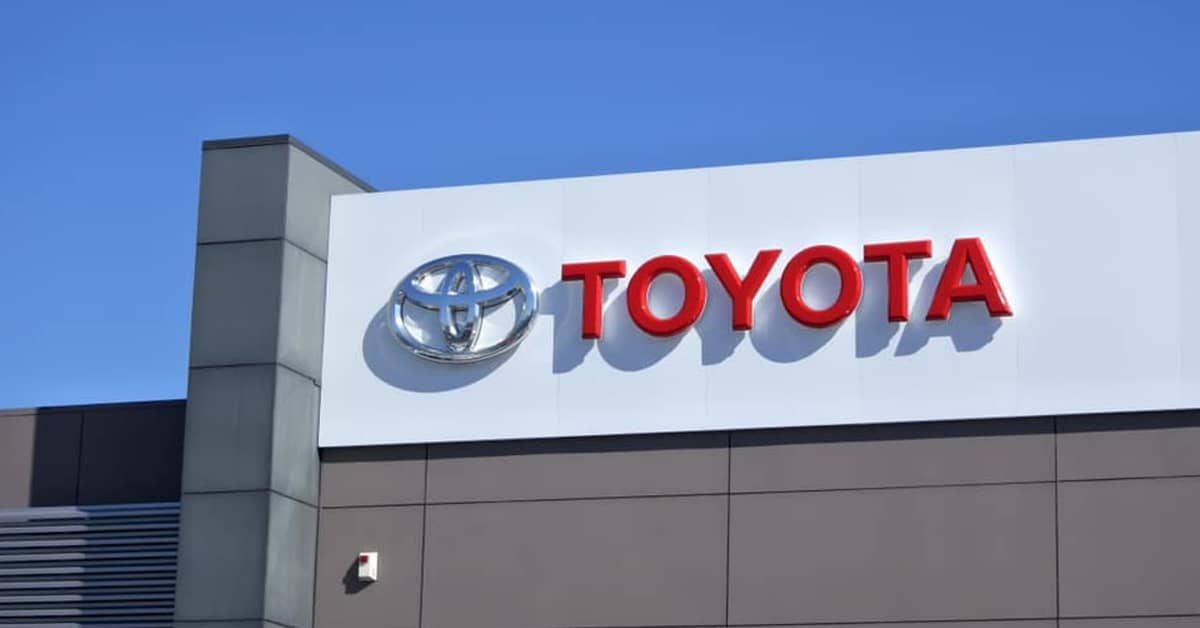Big news on EVs was announced in early July of 2023.
As stated by the Financial Times, “Toyota believes it could simplify the production process, potentially making solid-state batteries easier to produce than lithium-ion batteries and commercialize the technology into a vehicle by 2027”.
Benefits of Toyota’s solid-state batteries.
- First generation battery range will extend to 745 miles
- Second generation battery range will extend to 932 miles
- Charging time will be 10 minutes or less
On top of this, Toyota has over 1,000 patents in solid-state battery research.
To put this in perspective, as of 2023, here are EVs with the longest ranges, as cited in caranddriver.com.
- 2023 Lucid Air – 516 miles
- 2023 Tesla Model S – 405 miles
- 2023 Hyundai Ioniq 6 – 361 miles
- 2023 Tesla Model 3 – 358 miles
- 2023 Mercedes EQS Sedan – 350 miles
Here is the difference between lithium-ion batteries and solid-state.
Lithium-Ion
Today, EVs run on lithium-ion batteries. The lithium-ion batteries use a liquid or gel-form electrolyte that carries the charged particles in the battery from one electrode to the other. Unfortunately, certain issues have occurred which create safety concerns. For example, These batteries have been known to experience leakage or overheat which can pose a serious threat to the driver and any passengers.
Solid-state
Solid-state batteries swap out the liquid electrolyte for a solid electrolyte. By doing so, the solid electrolyte significantly decreases the risk of leakage and overheating. Additionally, the higher stability of the solid electrolyte allows for a higher energy density than the liquid-ion batteries giving EVs a much longer range on a single charge. With higher stability and density, solid-state batteries can be produced in more compact forms preventing the expansion and shrinkage of the material that leads to degradation experienced by lithium-ion batteries. This also means quicker charging times. The longer lifespan offered potentially means these batteries could even outlast the life of the vehicle itself.
What is the downside of solid-state batteries?
As stated by drivingelectric.com, solid electrolyte needs to be stable and chemically inert (not reactive), but it must also still be a good conductor for the battery to fulfill its function. As they’re so thin and delicate, solid-state cells are also prone to cracking. All this makes it much more expensive to fabricate solid-state batteries compared to lithium-ion batteries. In summary, solid-state batteries cost about 8x more to manufacture than lithium-ion batteries.
Who’s in the race?
Toyota, Honda, Peugeot, Citroen, Vauxhall, Mercedes, VW, Ford, BMW, and Hyundai are all working on solid-state batteries as we speak.
What is Tesla working on?
Tesla is not working on solid-state batteries. Instead, they are going in their own direction to work on a battery format known as the 4680 battery cell. The 4680 is Tesla’s fourth type of lithium-ion EV battery. It’s larger than its predecessors the 18650, 2170, and prismatic-type. Because it’s larger, it offers a longer range and a more powerful performance than Tesla’s other batteries.
When will the first solid-state battery be released?
- Toyota is aiming for 2025 (Hybrid in 2025 and fully electric in 2027)
- Vauxhall is aiming for 2026
- Nissan is aiming for 2028
As investors, what should we do?
Keep your finger on the pulse of battery technology over the coming years. As investors, the brands you want to pay attention to most include Tesla, Toyota, Honda, VW, Ford, and GM. Whoever gets to market first with solid-state, may be a good short-term investment play before the market becomes too saturated.
